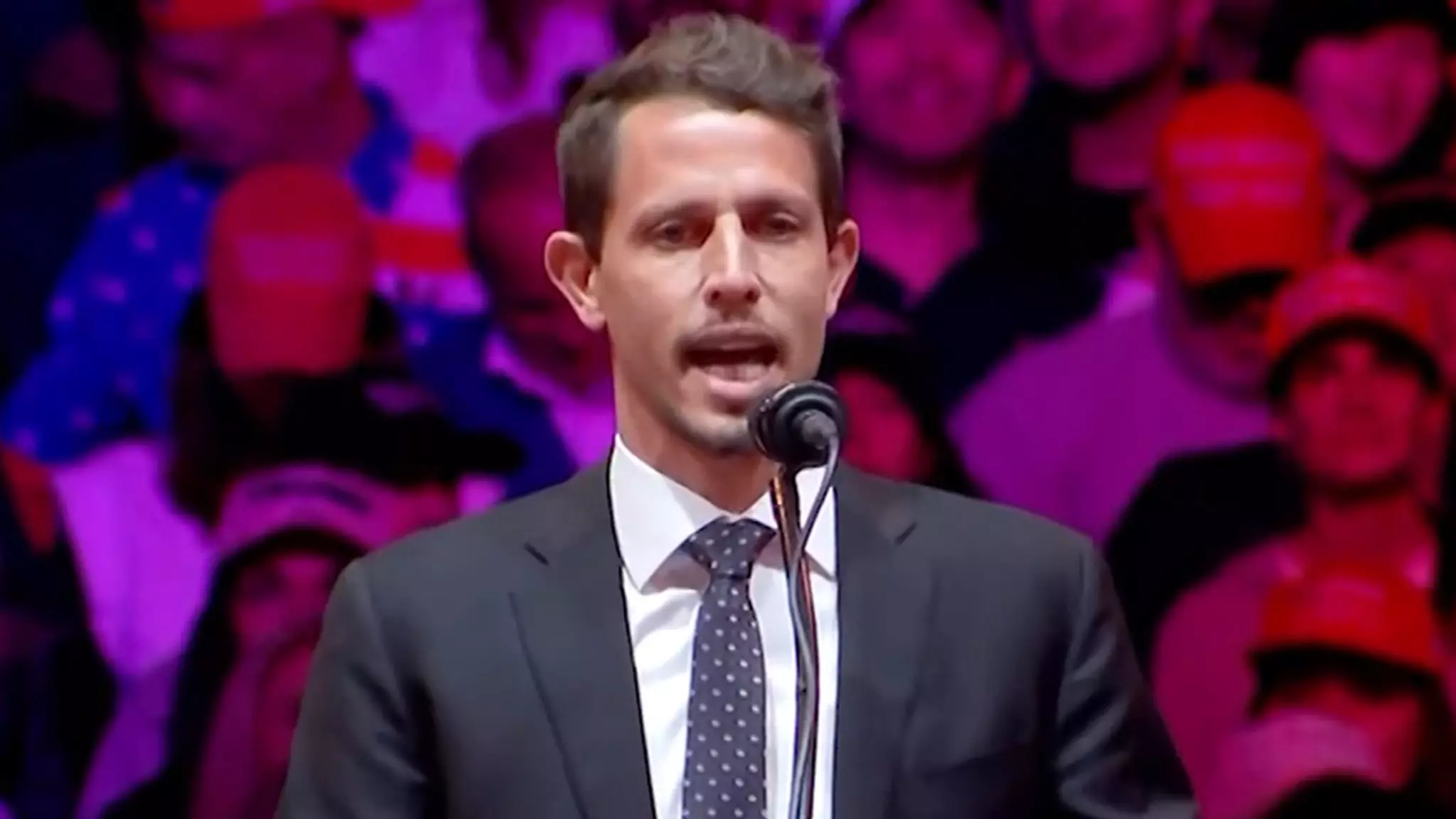In recent years, the landscape of comedy has undergone significant changes, especially regarding how jokes are received by the public. Comedian Tony Hinchcliffe recently found himself at the center of a firestorm after making a controversial joke while performing at a Donald Trump rally in Madison Square Garden. His attempt at humor, targeting Puerto Rico, has triggered backlash from notable figures and raised deeper questions about the responsibilities of comedians in politically charged environments.
Hinchcliffe is known for his edgy style, often pushing societal boundaries during his performances. His act at the rally included a variety of jokes that spanned different demographics and social categories, a strategy that has been met with mixed reactions in the past. However, one particular quip about Puerto Rico crossed an unexpected line, eliciting a tepid response from the audience. When he remarked that “there’s a floating island of garbage in the ocean — and, it’s called Puerto Rico,” the atmosphere shifted noticeably, and even Hinchcliffe seemed to register the discomfort in the room.
This moment highlighted an essential aspect of modern humor: the fine line between comedy and insensitivity. Historically, humor has often served as a means to critique societal issues, but when that humor involves offensive stereotypes, the risk of backlash increases exponentially.
Public Reaction and the Political Undertones
The fallout from Hinchcliffe’s joke was swift. Prominent figures, including Vice President Kamala Harris’ candidate for governor Tim Walz and Congresswoman Alexandria Ocasio-Cortez, vocalized their disapproval during a Twitch stream, further amplifying the incident’s visibility. Walz’s comments emphasized that Puerto Ricans are American citizens worthy of respect, and he criticized Hinchcliffe for downplaying their contributions and challenges. Such reactions illuminate the shifting bounds of what is considered acceptable discourse, especially when humor touches on sensitive subjects.
Hinchcliffe’s defense, framing his act as comedic license while claiming that he targets various groups, begs the question of whether comedians should be held accountable for their words. It raises a broader discussion about inclusivity and sensitivity in comedy, particularly in settings that already evoke political tensions.
This incident does not stand alone; rather, it marks a moment in an ongoing debate about artistic freedom versus social responsibility. The impact of social media has made it easier for individuals to voice their discontent, leading to rapid and widespread responses to controversial content. Consequently, comedians are now navigating a landscape where traditional boundaries are being increasingly scrutinized.
As Hinchcliffe faces potential fallout, this situation serves as a cautionary tale for other comedians who may tread similar ground. The importance of context, especially in politically charged environments, cannot be understated. Comedy’s role as a reflective mirror of society must be balanced with an understanding of the potential harms that certain jokes can perpetuate.
Tony Hinchcliffe’s experience is emblematic of the current dynamic in comedy — a field that, while inherently humorous, is increasingly complex due to heightened awareness of cultural sensitivities. As societal norms continue to evolve, comedians must carefully consider the impact of their words. The balance between humor and responsibility remains a delicate dance, one that will likely continue to spark debate in various forms for years to come. Hinchcliffe’s case is a reminder that laughter can heal, but it can also wound, and that the realm of comedy exists within a context that is ever-changing.

